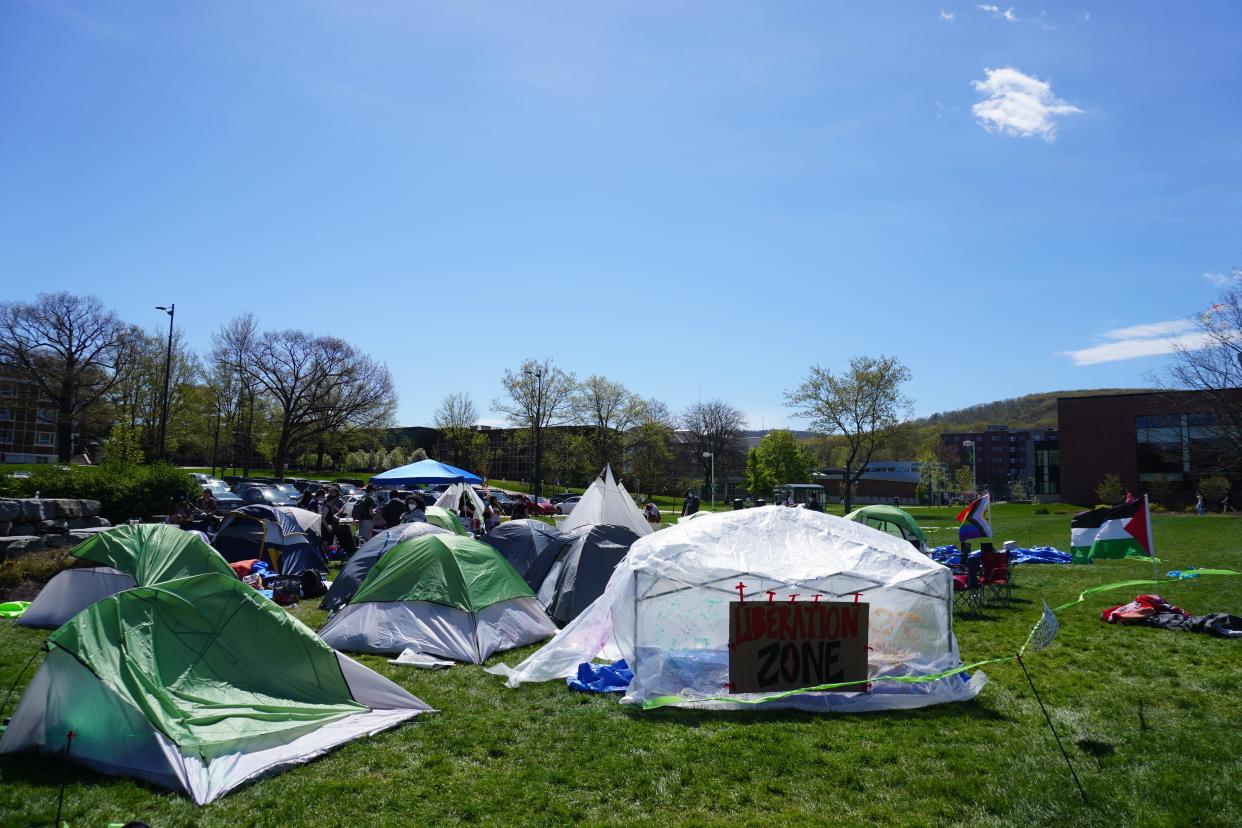Guest Viewpoint: Binghamton U. Student Assembly takes stand with resolution
Young people have a stake and should have a say in our common and public affairs. University students must be able to deliberate openly and freely on matters concerning their own institution and society at large. They offer perspectives that older generations might overlook and even disparage.
Faculty, staff, and administration must defend students’ unhindered rights to participate in reasoned, morally and empirically-based debates, and to protest against establishment-endorsed policies. Students have the right and the duty to make democratic decisions without interference from donors, politicians or lobbies.
On Tuesday, April 16, the Binghamton University’s Student Assembly adopted a resolution supporting the nonviolent Boycott, Divestment, Sanctions campaign to pressure Israel to obey international law. The resolution aims for university administrators to sever the university’s partnerships with the defense industry, particularly companies like Lockheed Martin and BAE Systems.

The resolution, which passed 14 to 11, reflects unequivocal recommendations by the United Nations. It should not be censured and overturned as commanded by intrusive state legislators. The university must not succumb to authoritarian intimidation that would reverse a fair and transparent vote. Giving in to these external pressures entails irreparable costs.
One cost is that broad swaths of the campus population will lose faith in the civic institutions we encourage them to participate in. The student body and its representatives will reasonably conclude that they are shams.
Censuring and invalidating the SA resolution also costs the university, and society more broadly, a valid and useful evaluation of the Israel-Palestine quandary. A recent historical example illustrates the danger of that cost.
Over 40 years ago, as global outrage against apartheid came to a head, student unions and assemblies from Maine to California called for universities to boycott South African government and institutions and divest from companies that did business there.
University presidents panicked and repressed. They vilified students, persecuted activists, closed down common spaces, and delayed meaningful action, much as we are seeing today. Columbia accused its students of criminal and civil violations, threatening to expel activists. At Berkeley, police raided a student sit-in, arresting over 150 student activists. Harvard’s president opposed divestment. In sweeping escalation reminiscent of the current spread of protest, students intensified their democratic and civic engagement only to be criminalized by their administrators with the backing of state and national politicians.
Eventually, students − alongside allied community and church groups − stirred the conscience of university leaders; universities embraced sanctions against and divestment from South Africa, helping to deliver a mortal blow to the apartheid regime.
Imagine if universities had successfully suppressed and ignored campus activists and assemblies! Today, the SA resolution must be allowed to stand and generate urgently needed discussion on the destruction and carnage resulting from the conflict between Palestine and Israel.
Overturning the resolution carries a price we cannot afford to pay.
Mary Albanese, Sandra Casanova-Vizcaíno, Tina Chronopoulos, Robyn Cope, Carl Gelderloos, Thomas Glave, Gladys M. Jiménez-Muñoz, Claire Kovacs, Monika Mehta, Joshua Reno, Kelvin Santiago Valles, and Leo Wilton are Binghamton University Professors.
This article originally appeared on Binghamton Press & Sun-Bulletin: Binghamton University Student Assembly takes stand with resolution
